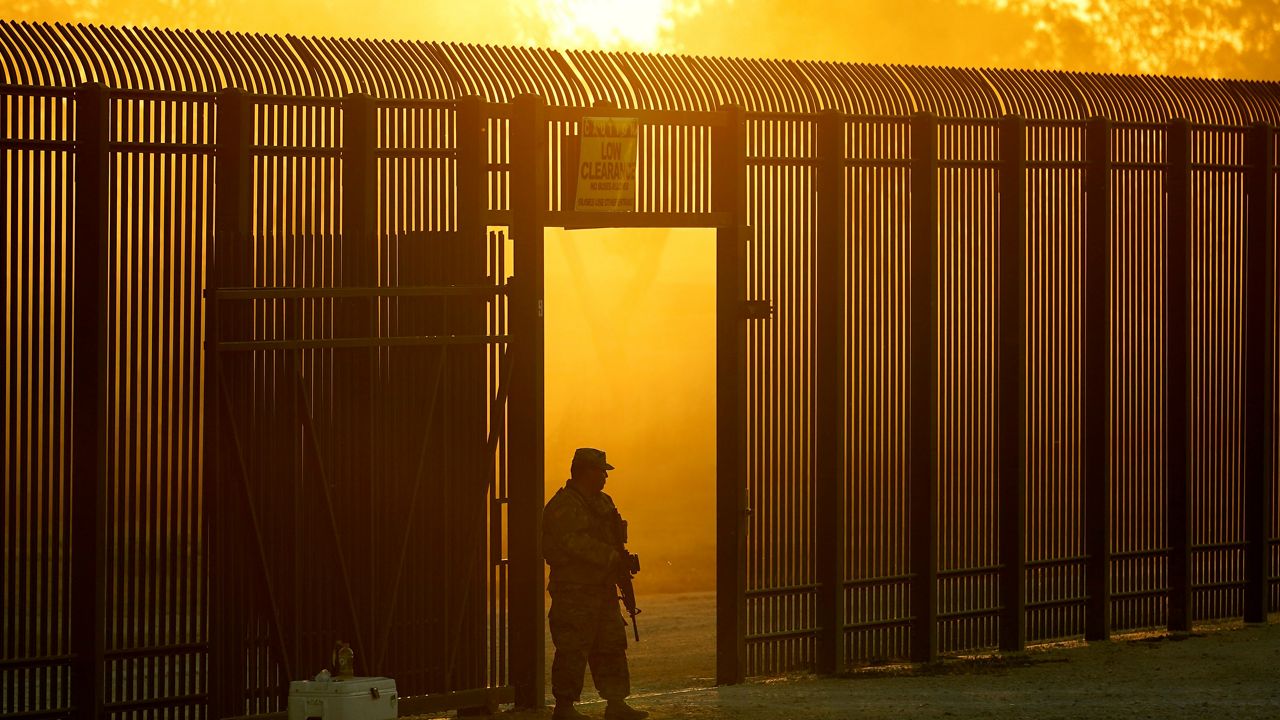AUSTIN, Texas — Texas military leaders acknowledged and discussed how they were addressing many of the complaints raised by National Guard members serving on the border in Operation Lone Star.
Chair Sen. Brian Birdwell, R-Granbury, called a two-day hearing of the newly formed Senate Border Committee to discuss state expenditures on the border. Lawmakers appropriated $1.8 billion last summer to underwrite the cost of Gov. Greg Abbott’s additional patrols and prosecutions on the border, which is named Operation Lone Star.
The additional patrols are a combination of U.S. Border Patrol agents, Department of Public Safety troopers and members of the volunteer Texas State Guard. The Texas State Guard part of the budget — $890 million — provides personnel to build temporary barriers; patrol border counties and rivers; and provide the supplemental legal support necessary for local district attorneys in the Rio Grande Valley to file 10,000 criminal cases.
Birdwell, a military veteran who survived the Sept. 11 attack of the Pentagon, never mentioned the recent media coverage of National Guard members on the border who complained about late paychecks, poor living conditions and boring work assignments, but he tackled all the issues during a question-and-answer session with top military leaders.
Some of the earliest complaints from Guard members, reported by multiple media outlets, were related to poor living conditions. Upgrading living conditions from temporary trailers to base camps for 10,000 people is going, said Brig. Gen. Monie Ulis, who heads up the Guards’ portion of Operation Lone Star. Six base campuses will be built.
Two bases are done, two are under construction and two still need to be done, Ulis said. He added that base camps had upgraded wireless internet connections and added mental health support services for Guard members, who are deployed on year-long missions.
“The quality of life has come a long way,” said Commander Sgt. Major Roger Branch, a senior adviser to Ulis. “With any deployment, you deploy, you set up, you improve your foxhole from there on out. That’s exactly what we’ve done with the support of the Texas Military Department and other agencies. The quality of life in the base camps is very, very good, in my opinion.”
Timely paychecks, an issue raised by Sen. Bob Hall, R-Edgewood, also were addressed during the hearing. Ulis admitted the Guard has been working on software created to pay during short-term events, such as hurricanes. New updates should help, Ulis said.
“Although they’re still manual input, this tool is able to go and find pay discrepancies. It’s an automated process well before it’s submitted for payroll,” Ulis said. “That’s why our pay accuracy has jumped significantly, from a low of 77 percent to current 99.4 percent.”
Ulis also confirmed the National Guard members could arrest people, an authority that was granted by the governor. Typically, Guard members will apprehend people and allow DPS troopers to complete the paperwork, Ulis said.
Sen. Juan “Chuy” Hinojosa, D-McAllen, had concerns about the length of service. Tours of Afghanistan were only six months. Hinojosa’s tour of Vietnam was 12 months ago.
“But we knew it was going to happen, and we had plenty of notice,” Hinojosa said of enlisted soldiers. “I hear from many of these (Guard members). We’ve pulled them from their civilian work. Some have just come back from dealing with hurricane disasters, which are usually short-term issues. I think it has an impact on morale.”
Hinojosa also asked whether Guard members were being stationed to patrol private land, such as some of the large-scale ranches in the Rio Grande Valley. Ulis said yes.
“Our missions are devised by the DPS,” Ulis said. “Typically, when I talked about the elite brush teams, that is part of that mission; whereby they have bypass along the river, the major roads, and are actually entering into private ranches.”
These are areas adjacent to more heavily trafficked areas, where migrants travel. Once people have crossed private property, Guard members can arrest them for trespassing.
Ulis and Branch also were joined by Major General Thomas Suelzer, who was named adjutant general over the Texas Military Department mid-March. Brig. Gen. Anthony Woods, who is the acting commander of the Texas State Guard, also was on hand.
The openness on issues such as pay, housing and assignments during Operation Lone Star was an about-face from a statement put out by a Texas Military Department spokeswoman at the end of January that accused reporters of gleaning information from “anonymous sources and unverified documents, which have then been skewed to push an agenda.”



